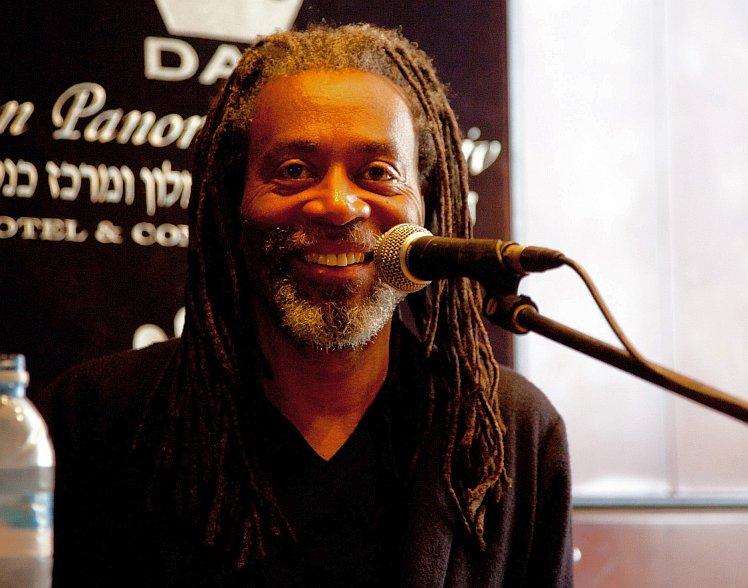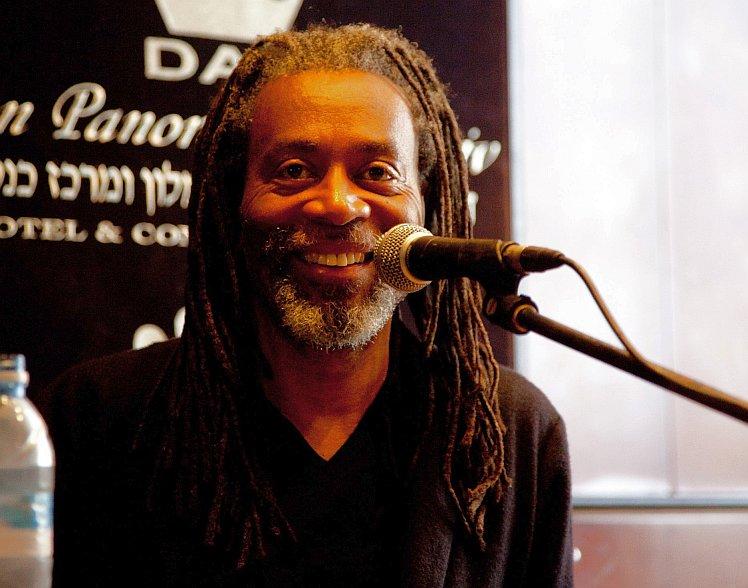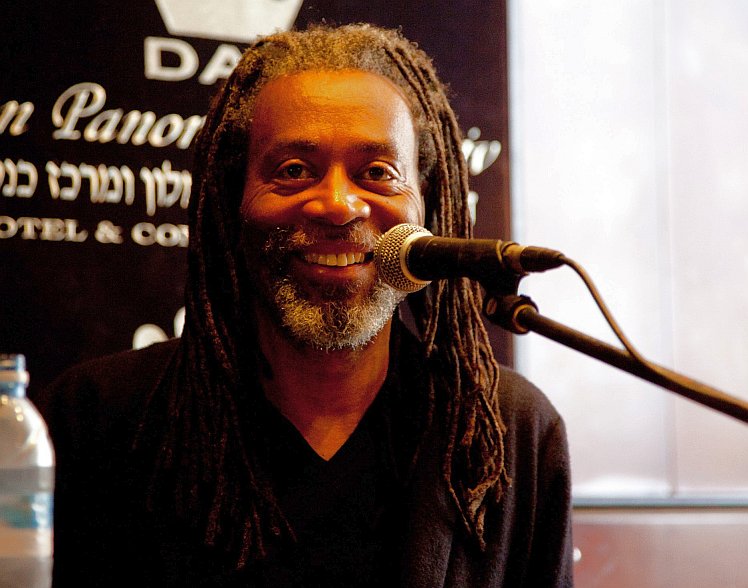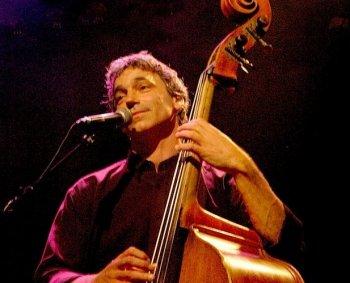TEL AVIV, Israel—“Which chair is mine?” Bobby McFerrin, the virtuoso American vocalist, mischievously asked as he approached the speakers’ table and the single chair next to it. McFerrin hosted the White City Music Festival, which was held May 1-10 in Tel Aviv.
Although he is best known for his hit song “Don’t Worry, Be Happy,” his musicality runs much wider and deeper; he is a profound musician. He has won 10 Grammy Awards, was appointed the artistic manager of the St. Paul’s Chamber Orchestra, and has conducted other orchestras in the world, performing alongside many stellar classical musicians.
McFerrin entered the press conference looking elegant in his black suit, and clicked his tongue to produce vocal sounds that filled the hall. He easily won over the audience with his almost bewitching presence.
I discovered that the colorful description posted on his website is true: “Listening to Bobby McFerrin sing may be hazardous to your preconceptions. Side effects may include unparalleled joy, a new perspective on creativity, rejection of the predictable, and a sudden, irreversible urge to lead a more spontaneous existence.”
Cultivating a Loving Heart
During the interview McFerrin was keen and concise. He incessantly produced sounds and bits of music, from opera to Brazilian songs to soul music, all in tune with the moment. These sounds backed up his words or added an extra opinion. Perhaps the words were really secondary and redundant.
McFerrin has kind eyes. I could sense his alertness and seriousness. Although he doesn’t seem keen on interviews, he is attentive and polite, and, at the same time, full of humor. When a journalist’s cell phone rang, he couldn’t resist and imitated the ringtone perfectly.
Talking about his visit to Israel, he said: “For years now I have been studying the Bible profoundly, and that’s why I wanted to come here: to feed my spirit—to feed my spirit with the guests that I'll play with, to feed my spirit with the audience that will be there, to feed my spirit walking on the beach.”
Asked if his legacy of artistic perfection and devotion is dying, he answered: “I think that in every generation there will be always somebody that is cultivating a loving mind.”
“Yes, cultivating a loving mind,” he repeated with a smile.
As to his role as an artist, he said, “My personal responsibility as an artist is to sing things that are redeeming—to bring positive energy, bring joy into people’s lives. I believe that the responsibility of every artist, in any artistic form he may devote himself to, is to change people, bring people closer together and make them believe in the art he is offering. I expect the audience to be different when they leave at the end of the show.
“Entertaining is nice; it is fun, and I do that, too. Yet, it is not my goal. My goal is to change people’s hearts, bring positive energy and joy into their lives, give them hope and encourage them to enjoy. That’s my job.”
An Instrumental Body
Bobby McFerrin is a genuine and thorough artist. He has a mind-blowing vocal range of four octaves, ranging from a deep bass to counter-tenor or even higher. In addition to his ability to emulate every sound and instrument, he also improvises—be it jazz, classical music, or any other musical style–and he does it in the most accurate and creative manner.
He is his own instrument and at times even an entire orchestra. He uses words less and focuses on sounds: “That is my technique,” he said.
“I practice every day. I have to practice being focused, at least an hour each morning before I meet the world. My practice is to sing every day. There was a time when I sang first thing in the morning, even before I spoke. In the first hour of my day I wrote music.”
He recounts that when he began to sing, he drew his inspiration from pianist Keith Jarrett. “At the time I decided I wanted to sing, I was playing a piano bar: ‘Look at me …’ and that sort of thing. I was much aware of Keith Jarrett’s solo performances, and I thought about what it would be like to a singer to be on stage alone. ‘What do I have to do? How it would sound and what would be my technique?’”
“I had no model to follow, so I practiced for six years, about two hours a day. Then, one day, when I was about to go on a European tour with a band, I called my manager and told him that I wanted to do vocally all of the solo parts. Some of the European hosts cancelled my gig on the spot, but others said, ‘Oh, that sounds quite interesting!’”
McFerrin makes use of sounds from languages, without using the words themselves. He explains: “I want to distance myself from anything that is gimmicky. I was concerned about people thinking I was only trying to imitate musical instruments. And language sounds interesting. Voice has the potential of producing thousands of sounds, more than a musical instrument could. The color of our voice, the color of language, it’s so much more interesting.”
I asked the man who is all music, where the music comes from. He thought for a moment and then replied: “Music comes from the soul, from the innermost place. That’s how it should be. If it does not come from that place, then you are not a true musician. You may be a celebrity or something else, but it’s artificial.”
Surprisingly, McFerrin is a man of silence. He had considered joining a monastery when young. “At the age of 16 I wanted to join an order in Santa Barbara and become a monk. But God had other plans for me,” he says with a smile, adding: “I love being quiet. It enables me to hear better—people, music, myself. I don’t go out much. Even after a show I love to shut myself down in my room and let myself be absorbed by the night. That is what attracted me to monasticism—the quiet within.”
Activating the Audience
McFerrin’s been performing around the world for many years now. Sixteen years ago he visited Israel and performed with the Israeli Philharmonic. “What? Has it been that long?” he asked in amazement.
His ability to communicate with the audience and the musicians playing at his side is well known. His hosting of the White City Music Festival gave him a chance to work with many musicians. It offered close to 40 jazz, world music, rock, and beat performances, starring individual artists and world-renowned groups from Israel and abroad.
“I usually invite a musician to play with me not knowing what he would bring along with him,” he said. “I love mystery. I’m always interested in carrying out a musical conversation with new musicians, but my primary guest is the audience.
“I always activate the audience, in each of my performances. It makes me happy. In each and every member of the crowd there’s a part that wants to participate.”
McFerrin is extremely funny. In one of the video clips on YouTube in which he sings Bach’s Ave Maria with the audience, (one of his well-known bits) he asks the audience to sing the melody while he himself sings the accompanying prelude. He suggests to Jewish members of the audience who might not feel comfortable singing the words “Ave Maria,” to sing instead “Oy vey Maria.”
In another clip he conducts an orchestra speaking in a foreign language—of course, it is something that only sounds like a foreign language, and the audience simply bursts with laughter.
Carrying on a Legacy
Sixty-two-year-old Bobby McFerrin was born in New York. His father was somewhat of a musical aristocrat. Robert McFerrin was a baritone singer at a time when racism ruled in art, and it was hard for an Afro-American singer to get parts on stage. Robert’s father was a minister and let him sing only gospel. But music was burning in McFerrin senior’s veins and pursuing his passion, he turned to the opera.
He was the first Afro-American soloist to sing at the New York Metropolitan Opera. Still, limited by the color of his skin to only so many operatic roles, he sought other venues as well, and was the singing voice behind Sydney Poitier in the 1957 movie “Porgy and Bess” based on Gershwin’s opera.
He passed his beautiful voice and his gentleness to his son.
More Than a Hit
McFerrin said he’s disappointed that he is recognized mainly due to his hit “Don’t Worry, Be Happy” and adds that some people asked him if he is still working.
“I’m disappointed to learn that this is all they know about me,” he says. “On the other hand, I’m still amazed that people know this song even at this corner of the world; it helps me go through hard times. I’ve never been interested in being popular or famous. My aim is to work and this is what I do and enjoy doing. All the rest is the results of this hard work.”
With a schedule packed with international events, this slim and modest man continues to enchant audiences across the world with his personality and his artistic work that combines diligence, creativity, high quality, and a loving heart.
The Epoch Times publishes in 35 countries and in 19 languages. Subscribe to our e-newsletter.






